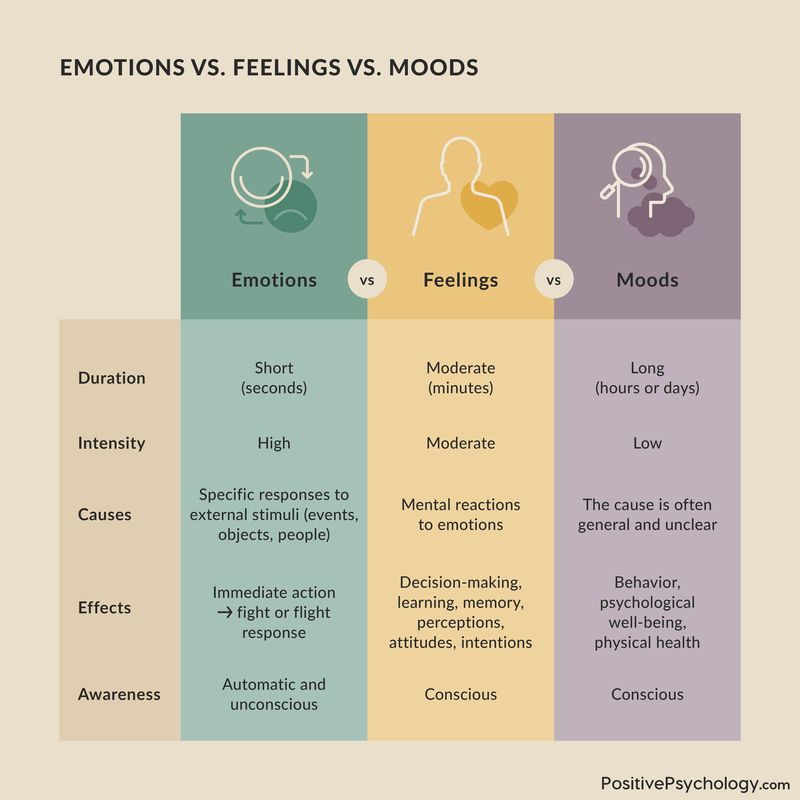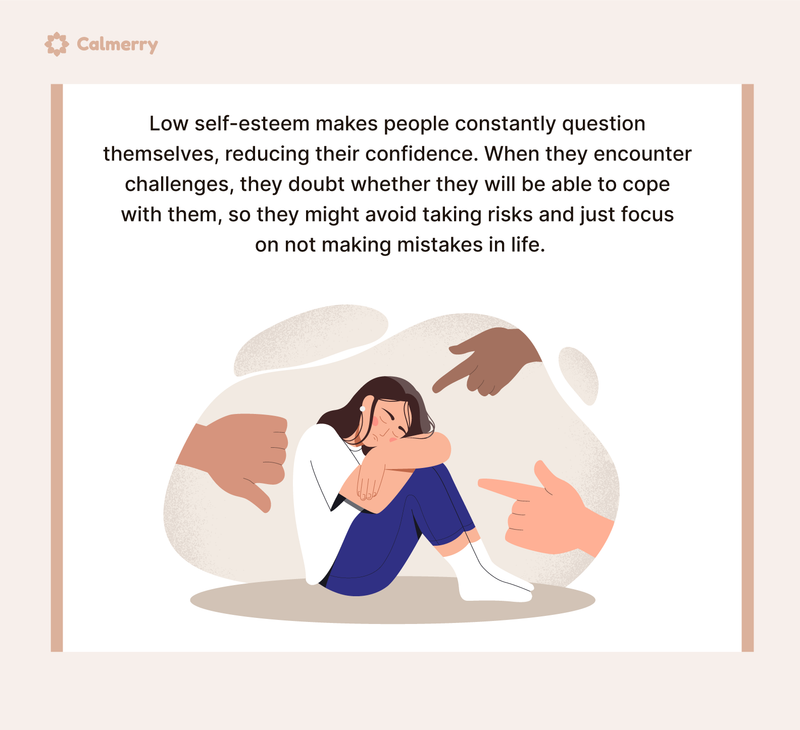The nuances of parenting can have profound effects on a child’s development, often manifesting in unexpected ways. Psychology reveals various signs that might suggest not having had the best parental guidance, which can influence individuals throughout their lives. Recognizing these signs can be a step towards understanding and potentially healing past wounds. This article explores thirteen surprising indicators that might point to less-than-ideal parenting experiences, providing insights into how these experiences shape adult behaviors, emotions, and relationships. Join us as we delve into these signs and uncover the psychological meanings behind them.
1. Constant Need for Approval

Does the desire for validation drive your every decision? Many who grew up seeking constant approval from their parents often carry this behavior into adulthood. The urge to please everyone might stem from childhood patterns where parental acceptance was inconsistent or conditional.
This relentless pursuit can exhaust emotional reserves, making genuine self-worth elusive. You might find yourself overworking or saying yes too often, feeling it’s never enough.
Breaking this cycle requires recognizing its roots and gradually building self-assurance. It’s crucial to differentiate between external validation and true self-esteem, learning to value oneself independently.
2. Fear of Conflict

Does conflict make your heart race? A childhood where disagreements were chaotic might lead to an adult life avoiding them at all costs. Fear of conflict often emerges from environments where it was mishandled or discouraged, leaving one ill-equipped to manage it.
This aversion can hinder personal and professional growth, stifling honest conversations and resolutions. You might sacrifice your opinions to maintain peace, leading to internal resentment.
Addressing this fear involves learning healthy conflict resolution skills, embracing disagreements as opportunities for growth rather than threats to stability.
3. Indecisiveness

Do you struggle with decisions, big or small? If parental guidance was overly controlling, it might leave you doubting your choices. Indecisiveness can stem from a lack of trust in one’s judgment, cultivated in childhood environments focused on compliance over autonomy.
This can manifest as overanalyzing every option, fearing mistakes. The paralysis of choice often leads to missed opportunities and stress.
Developing confidence in decision-making requires practice and patience, learning to trust one’s instincts and accept that not every choice will be perfect but will be a learning experience.
4. Difficulty Expressing Emotions

Is it hard to share your feelings? Growing up in an environment where emotions were not openly discussed can lead to difficulties in expressing them as an adult. This often manifests in relationships where communication is key.
Bottling up emotions might seem safer but can lead to misunderstandings and isolation. You might feel disconnected from your own emotional experiences or struggle to empathize with others.
Learning to express emotions effectively involves understanding them first, then finding safe spaces and methods to communicate them constructively.
5. Overachievement

Do you feel the need to constantly excel? Overachievement can be a response to seeking validation from parents who emphasized success. This drive, while often praised, can lead to burnout and a lack of fulfillment.
You might find yourself setting unrealistic goals, fearing failure more than valuing achievements. The constant push for perfection can overshadow genuine passions and joy.
Finding balance involves redefining success on personal terms and recognizing the value in effort, not just outcome. Embracing imperfection can lead to a more fulfilling, less stressful life.
6. Trust Issues

Is trusting others a challenge? If parental relationships were marked by inconsistency or betrayal, trust becomes a complex issue. It can lead to skepticism and difficulty forming close connections.
You may find yourself questioning others’ motives, leading to strained relationships and loneliness. This protective barrier, while understandable, can prevent meaningful interactions.
Building trust involves gradual risk-taking, starting with small acts of vulnerability. Understanding that not everyone will betray trust is a crucial step in opening up and forming healthier relationships.
7. Low Self-Esteem

Do you doubt your worth? Low self-esteem often roots in childhood environments lacking affirmation. If critical parenting overshadowed encouragement, it might lead to negative self-perceptions.
This can manifest as self-doubt, internalizing failures, or relying heavily on external praise. The impact is pervasive, affecting career, relationships, and personal growth.
Building self-esteem involves recognizing inherent worth and cultivating positive self-talk. It’s about embracing imperfections and celebrating small victories, gradually reshaping the self-image from within.
8. Perfectionism

Does striving for flawlessness define you? Perfectionism is often rooted in the pressure to meet high parental standards. It can lead to stress, anxiety, and dissatisfaction, overshadowing achievements.
This desire for perfection can stifle creativity and lead to procrastination, fearing anything less than perfect isn’t worth attempting. It’s a cycle that can be hard to break.
Learning to embrace imperfection involves setting realistic goals and appreciating progress. Understanding that mistakes are part of growth can alleviate the pressure to constantly excel.
9. Poor Boundaries

Are boundaries a challenge for you? Growing up in an environment where boundaries were disregarded can lead to difficulties establishing them as an adult. Poor boundaries can result in burnout and resentment.
This manifests in overcommitting, struggling to say no, or feeling responsible for others’ emotions. The lack of personal space can lead to exhaustion and strained relationships.
Developing healthy boundaries involves understanding personal limits and communicating them clearly. It’s about prioritizing self-care and recognizing the importance of personal autonomy.
10. People-Pleasing

Do you often prioritize others over yourself? People-pleasing can stem from a need to gain approval from demanding parents. It leads to neglecting personal needs and sacrificing authenticity for acceptance.
This behavior can cause burnout and a sense of identity loss, as personal desires are constantly sidelined. You might find it hard to assert your own needs, fearing rejection or disappointment.
Overcoming people-pleasing involves asserting oneself and valuing personal desires. It’s about balancing kindness with self-respect, ensuring that relationships are reciprocal and fulfilling.
11. Fear of Failure

Does failure paralyze you? A fear of failure often originates in environments where mistakes were met with harsh criticism. This fear can stifle growth and creativity, leading to avoidance of new challenges.
You might second-guess every move, fearing the consequences of imperfection. The pressure to succeed can overshadow the joy of learning and exploration.
Conquering this fear involves reframing failure as a learning opportunity. Embracing mistakes as part of the journey can lead to a more adventurous and fulfilling life.
12. Emotional Detachment

Do you feel disconnected emotionally? Emotional detachment can arise from childhoods where feelings were dismissed. It can lead to challenges in forming deep relationships, resulting in isolation.
This detachment can manifest as difficulty in empathizing or expressing care, leaving one feeling separate from others. The protective emotional shield can become a barrier to genuine connections.
Overcoming this involves exploring emotions in a safe environment, gradually opening up to vulnerability and intimacy, allowing for more genuine relationships.
13. Chronic Stress

Is stress a constant companion? Chronic stress can be a legacy of growing up in a high-pressure environment. This stress response becomes ingrained, affecting health and well-being.
You may find yourself in perpetual overdrive, unable to relax, with stress infiltrating every aspect of life. It becomes a familiar, albeit harmful, state of being.
Managing chronic stress involves identifying triggers and implementing stress-reduction techniques. It’s about seeking balance and prioritizing mental and physical health, breaking the cycle of perpetual stress.
Hi all, I am Sidney, an accountant, a hobbyist photographer, and a mother to two sweet girls who are my motivation. I love sharing the tips and tricks I gained all these years I’ve been a mother. I hope it will help you!

